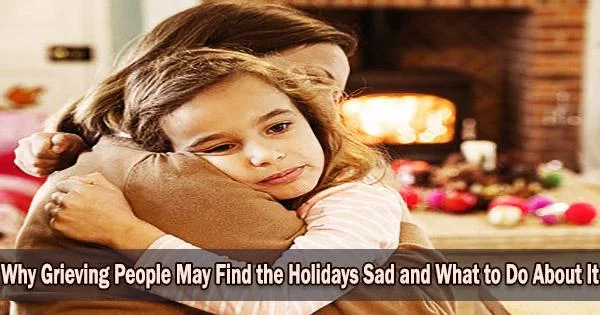The holidays can be a difficult time for those who are grieving the loss of a loved one. The holiday season is often associated with feelings of joy, togetherness, and celebration, which can be in stark contrast to the feelings of sadness and loneliness that often accompany grief.
Grieving persons often chat to us about their lost loved ones throughout the weeks leading up to Thanksgiving and through Christmas with a fresh sense of loss and longing.
Because of our therapists’ repeated observations over the years, we have learned that the season of cheery holidays can actually be a time of year when our patients need extra sympathy and care. We have seen that even losses suffered over a long period of time can evoke intense emotions when they are connected to a holiday.
Holidays are typically observed in traditional ways that get ingrained in family custom. As these occasions draw near, our memories are heightened, and our thoughts are frequently more preoccupied with those who will be missing than those who will be present.
Because of how similar our rituals are, we are frequently reminded of how beautiful it was when our loved one helped us with the turkey carving, hung the decorations, or participated in the singing, making their absence felt more painfully.
Because it’s not the same as it used to be, for instance, kids may feel that it’s not really Christmas. Additionally, some people experience guilt for celebrating when a loved one is no longer able to join them.
It’s critical to consider where each member of the family, including yourself, is in respect to the loss so that you can be sensitive and understanding, and perhaps even adjust your plans based on how everyone is feeling.
Siblings and spouses may feel very differently about the holidays within a family. If this is the case, we advise coming to an agreement so that everyone feels heard and receives a portion of what they need and want.
There is a lot of societal pressure to gather with groups of people and be festive. Joyful songs are playing in stores, people are posting photos of their happy gatherings. You and your close family may not feel able to do that this particular year.
For instance, going camping instead of hosting a Chanukah celebration is acceptable. It is helpful to teach kids that doing what works for your family this year is more important than trying to live up to some ideal or standard.
Holiday get-togethers can be tremendously uplifting and worth the effort, or they can feel emotionally distant from you and your kids. Consider your options carefully, and make the decision that is best for everyone.
Perhaps some people will be disappointed, but many do, and you can talk to those who don’t at a later time when you feel comfortable doing so.
We have discovered over time from our work and personal experiences that recollections of a loved one who has passed away can elicit a wide range of emotions, including sadness, happiness, and other feelings, depending on how we are feeling and thinking at the time.
It is best to avoid pushing past these moments and instead to calmly absorb whatever comes up. This acknowledges the fact that we grieve for the person who passed away.
You can learn to remember the person who passed away by recalling events and stories that bring you back to the wonderful sentiments you once had and always will from moments spent together, as opposed to attempting to avoid sad emotions.
We know it is not the same as what was. There can be some comfort in knowing that they will forever exist within our hearts.
The absence of a loved one can be particularly poignant during the holidays, which can make it difficult to find enjoyment in holiday traditions and activities. Remember, it is normal to feel a range of emotions during the holiday season, and it is okay to take care of yourself and prioritize your own needs.
















